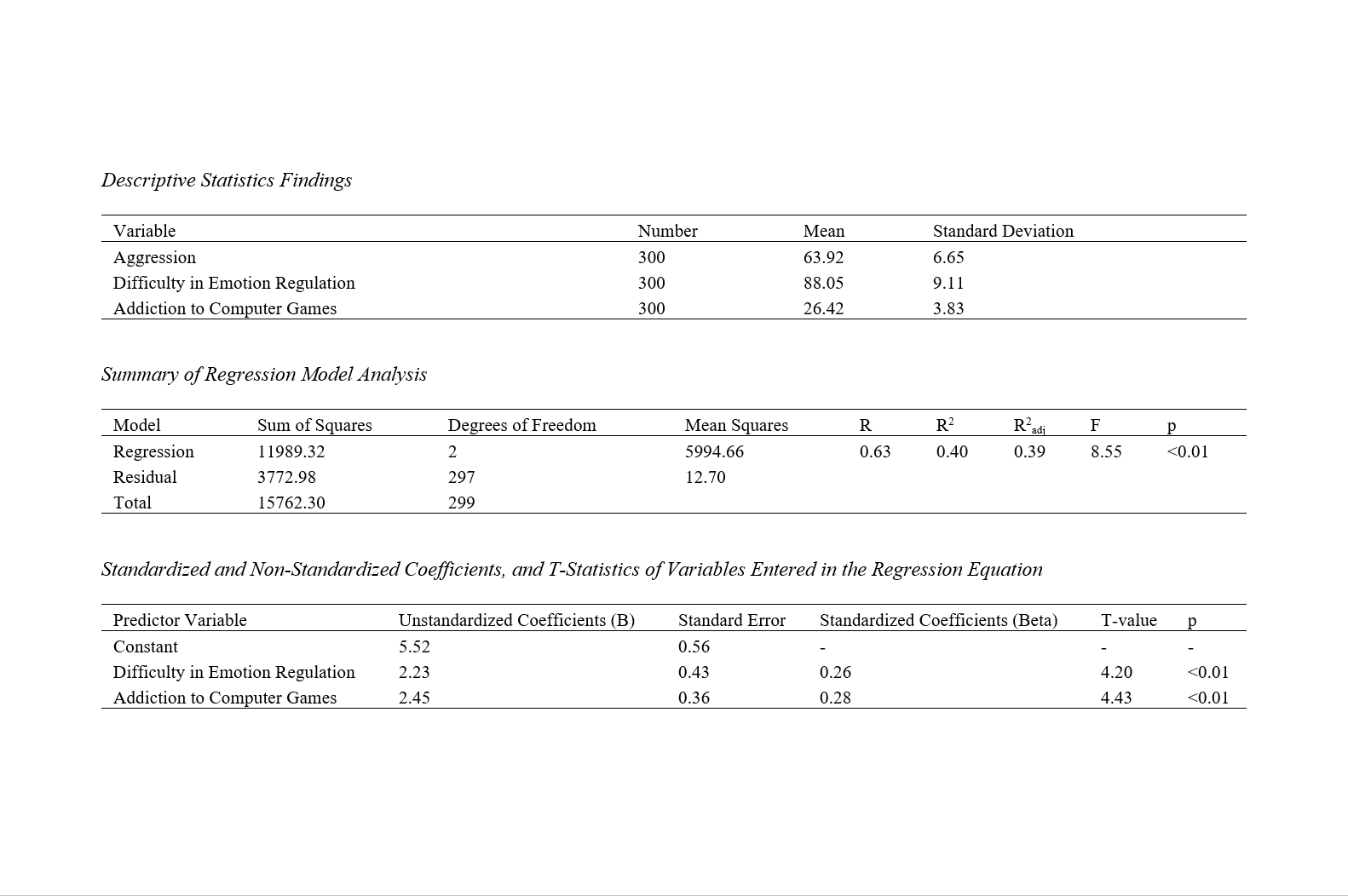Understanding Aggression through Computer Game Addiction and Emotion Regulation Difficulties
Keywords:
Aggression, Emotion Regulation, Computer Game AddictionAbstract
Objective: This study aimed to investigate the predictive relationship between difficulty in emotion regulation, addiction to computer games, and aggression. It sought to understand how these factors individually and collectively contribute to aggressive behaviors.
Methods and Materials: A cross-sectional design was employed, involving 300 participants aged 18-35 years. Data were collected using standardized measures: the Buss-Perry Aggression Questionnaire (BAQ) for aggression, the Difficulties in Emotion Regulation Scale (DERS), and the Computer Game Addiction Scale for computer game addiction. A linear regression analysis was conducted using SPSS Version 27 to assess the predictive power of emotion regulation difficulties and game addiction on aggression.
Findings: The regression analysis revealed that both difficulty in emotion regulation (β = 0.26, p < 0.01) and addiction to computer games (β = 0.28, p < 0.01) significantly predicted aggression, accounting for 40% of the variance in aggression scores. These results suggest a strong and significant relationship between the studied predictors and aggressive behavior.
Conclusion: The study's findings underscore the importance of considering emotion regulation difficulties and computer game addiction as significant predictors of aggression. These insights highlight the need for targeted interventions to address these factors, potentially mitigating aggressive tendencies in individuals with high levels of game addiction and emotion regulation challenges.
Downloads

Downloads
Additional Files
Published
Submitted
Revised
Accepted
Issue
Section
License
Copyright (c) 2024 Maryam Ramezani (Author); Akram Changizi (Corresponding Author)

This work is licensed under a Creative Commons Attribution-NonCommercial 4.0 International License.








